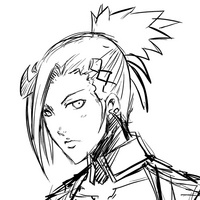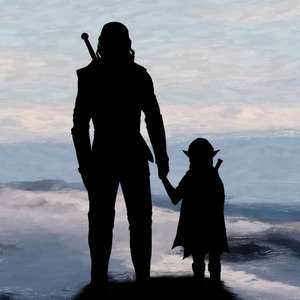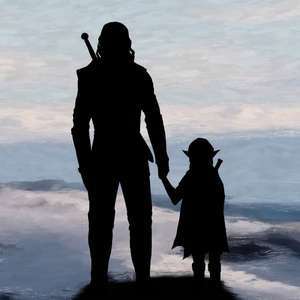It was a sun-bathed afternoon not a month before the harvest when Gareth gathered his subservients to him and bade them set in motion the first steps of a ruthless scheme of surpassing depth and cunning, for which he had long prepared. Jaris, it need not be said, knew naught of this before the arrival of the Duke’s pageboy, harried and frantic, at the manor-gate, bearing news of a Hob onslaught of unusual fury.
As he had done so many times in the past, Jaris donned his armor and set his blade in its place across his back. And as she had so many times in the past, Rhea took a dry-pressed flower in a wreath of flaxen hair from a folded handkerchief, and placed it in the hand of her beloved, and bade him a safe journey. And as he had so many times in the past, young Alric ran alongside his father’s horse breathlessly, shouting excitedly as small children are wont to do.
But this excursion was not like so many in the past. For the damage done the towns nearest the hills was greater, and inflicted with more malice, than ever before. The warriors of the Realm set out in pursuit of the dastardly creatures, but even on their war-steeds could not find those they sought. Where, they pondered, could the monsters have concealed themselves?
The answer, in greatest tragedy, was that place which the war-party had left in such great haste.
Before the riders had returned past the goat-herds, already were the first desperate messengers appearing to call them back to defend their own homes from fast-riding Hob the likes of which the Realm had neither seen nor dreamed.
Jaris exhausted two steeds that autumn night and the following morn, reaching his estate when the golden sun hung low over the fields. Fire had taken the manor-house, and with it all Jaris had owned save the sword across his back and the armor betwixt the two.
This alone would have been called cruel by any man, but it would be deemed insignificant by any of good heart when compared to the scene that Jaris came upon in the courtyard abutting the stables.
There, he found his beloved and their son, laid out among the stable-muck where they had fallen. Though none were left alive to bear witness to the tragedy, his warrior-eyes could follow in the marks upon the ground that which had transpired.
In the yard, several Hob had cornered the two defenseless innocents, and driven them into the mud. There, Rhea had covered Alric with her thin body, sparing him the blows of axe and war-club. But this noble sacrifice was in vain, as Alric had been drug out from under her and beaten, without mercy. Then his throat was slit and he was dropped, as one would a fever-stricken dog, into the muck. The cruelty was not finished even then, it seemed, as Rhea had expended her remaining flicker of life crawling to him, before finally breathing her last. And there she had laid, through the chill autumn night and into the heat of the day, one hand frozen in its outstretched grasp toward the form of her son, and in the other clutched a tuft of her husband’s hair and a dry-pressed flower of the same crimson that ran in such volume from her body.
This tale could Jaris read in the tracks at his feet, though it is certain that he wished his eyes kept it secret from him. He embraced the remaining earthly forms of all that he had loved, save his Liege, and cried out curses to the gods better left unrecorded. It could not be claimed that Jaris was anything less than a most stalwart Knight, but on that day he wept as a babe denied the solace of its mother’s breast. Only once more would he allow such unseemly tears, but that day was not to come for many years yet, and it would have no smaller a part in the path he would walk.
Such a scene of lamentation was repeated too many times to bear across the Northlands, and the dead were in greater number than those who remained to dig their graves that autumn.
Some measure of what Jaris was, it could be said, died that day. A lesser man might have taken his own life, or let drink and lamentation consume him. But, as any of his vassals still unburied would attest, a lesser man Jaris was not. And so, with the grave-dirt yet bare, he again mounted his steed and placed a dry-pressed flower of crimson encircled with a wreath of flaxen hair beneath his cuirass and left that which remained of his home, this time never to return. More lamentable still, none remained to shed tears for his absence.











Comments (0)
See all